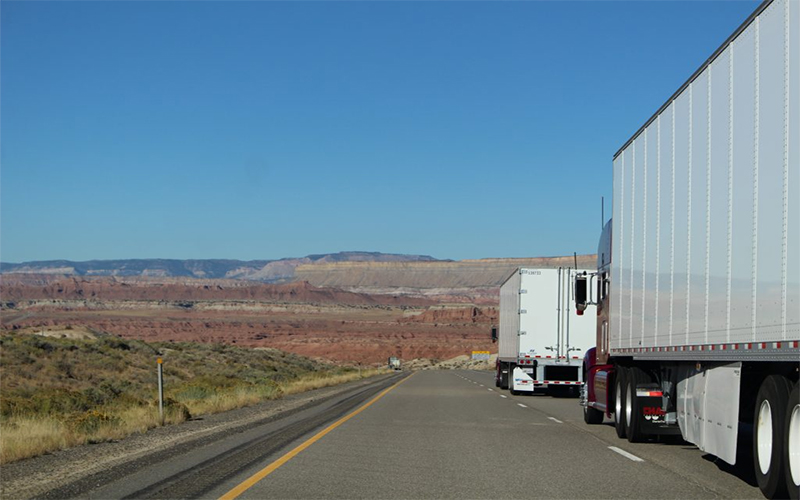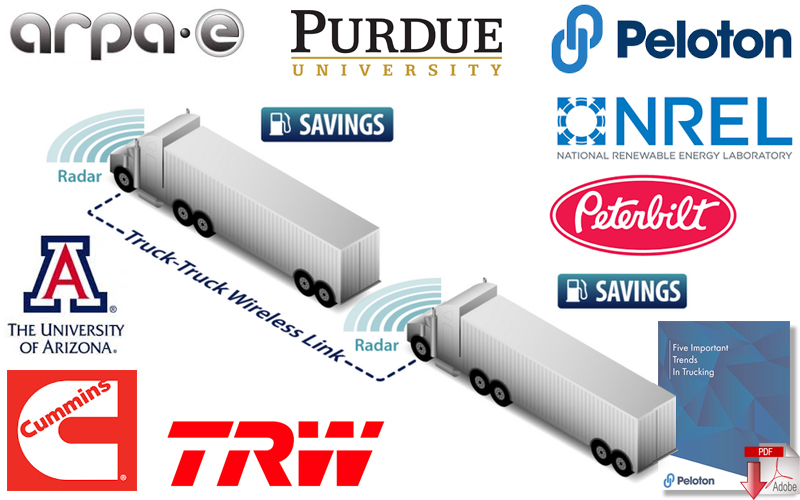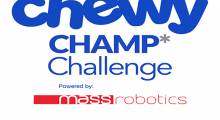Peloton Technology, a connected and automated vehicle technology company dedicated to improving the safety and efficiency of freight transportation, has announced its participation in the Next-Generation Energy Technologies for Connected and Autonomous On-Road Vehicles (NEXTCAR) program sponsored by the U.S. Department of Energy’s Advanced Research Projects Agency-Energy (ARPA-E).
The project will apply next-generation truck platooning technology and concepts for smart, cloud-connected powertrains to achieve 20 percent fuel savings for tractor-trailers.
Led by Purdue University, Peloton’s NEXTCAR project team also includes Cummins, Peterbilt Motors Company, ZF TRW, the University of Arizona and the National Renewable Energy Laboratory (NREL).
Contributions from partners include Peloton’s current platooning system and higher-automation platooning technology under development, advanced powertrain solutions from Cummins, steering controls from ZF TRW and state-of-the-art trucks from Peterbilt.
“As we join in launching this national project, we are excited about the team’s complementary strengths in commercial powertrain development, connected vehicle applications, vehicle automation and trucking operations,” said Peloton CEO Josh Switkes.
“Our first truck platooning system is coming to market in 2017. This project will build upon our existing system and is complementary to the higher-automation solutions we are developing next. We appreciate the leadership shown by ARPA-E in creating the NEXTCAR program and by Purdue in assembling our team.”
The partners will develop, integrate and demonstrate a set of co-optimized powertrain and automated driving controls to improve the fuel efficiency of tractor-trailers, which consumed over 40 billion gallons of diesel fuel in 2015 according to the American Trucking Associations.
“This cutting-edge project advances private-sector collaboration underway with Peterbilt, Cummins, ZF TRW and others,” said Steve Boyd, Peloton’s VP of external affairs.
“We are energized to work with these partners in developing and bringing to market the next stage of smart, connected truck systems and higher-automation platooning,”
By combining novel algorithms, look-ahead data and vehicle-to-vehicle (V2V) and vehicle-to-cloud (V2C) connectivity, the team aims to reduce the fuel use of a baseline Class 8 Peterbilt 579 by 20 percent in real-world driving conditions. That level of savings across the U.S. tractor-trailer fleet would translate to upwards of 8 billion gallons in diesel fuel and 80 million tons of carbon dioxide emissions conserved annually.
The new controls require minimal hardware changes and can be programmed into electronic control units (ECUs) that are already on the trucks. This approach means that innovations that emerge from the project can be commercialized at low cost.
For NEXTCAR, Peloton will address two key research objectives. The first is to increase fuel savings from truck platooning at highway speeds from a baseline average of 7 percent across two trucks to 20 percent in combination with connected powertrains.
Peloton’s flagship platooning system, which will reach commercial trucking fleets in 2017, creates a wireless link between the automated throttle and brake control systems on multiple trucks to synchronize their speeds and maintain a safe following distance even in the event of a sudden stop. The 7 percent baseline fuel savings from the Peloton system has been validated through independent SAE Type II fuel economy testing conducted by the North American Council for Freight Efficiency and NREL.
The significant gain in platooning efficiency over the three years of the NEXTCAR project will be the sum of several technology advancements, including the development of powertrain set points optimized for when trucks are operating in platooning mode, and the integration of steering control which will raise the system from a Level 1 to Level 2 automated driving system under industry-standard definitions of SAE International.
“Our objective is to tap into fuel savings that can only be attained by managing the powertrain precisely for the road ahead, and for the specific configuration of the trucks,” said Michael Palmer, Peloton’s director of research.
“Cloud connectivity provides information about the road ahead, and the trucks exchange data about their estimated mass and powertrain capabilities. This helps us maintain smooth, efficient platooning through grades and rolling hills.”
Peloton’s second NEXTCAR focus area will be to meet the connectivity requirements of powertrain innovations including over-the-air engine recalibrations and distributed computing between trucks and the cloud.
This work will build on Peloton’s experience in developing a cloud-based Network Operations Center to manage vehicles equipped with automated driving systems including its flagship truck platooning system, which employs DSRC, cellular LTE and WiFi to connect vehicles to each other and to the cloud.
“We are delighted to have Peloton on the team,” said Greg Shaver, professor of mechanical engineering at Purdue and principal investigator for the project team.
“Peloton brings thought leadership and proven, compelling results in Class 8 truck platooning and connectivity. I cannot imagine pursuing this ambitious project without Peloton’s significant participation.”
Peloton and its NEXTCAR partners expect to launch the three-year project in March 2017. The team will receive a total of $5 million from ARPA-E and will provide additional cost share funding. The Purdue-team has been offered the largest award (tied with Ohio State University) of 10 total NEXTCAR Program projects.
Related: Why Trucks Will Drive Themselves Before Cars Do
Article topics
Email Sign Up




















